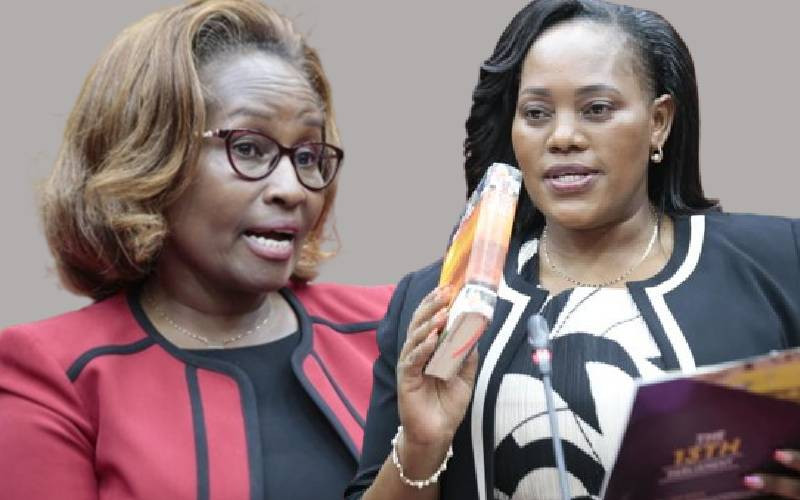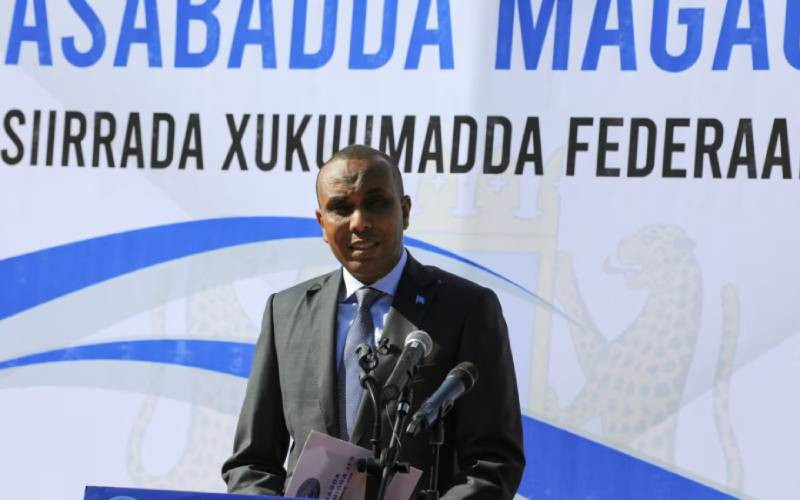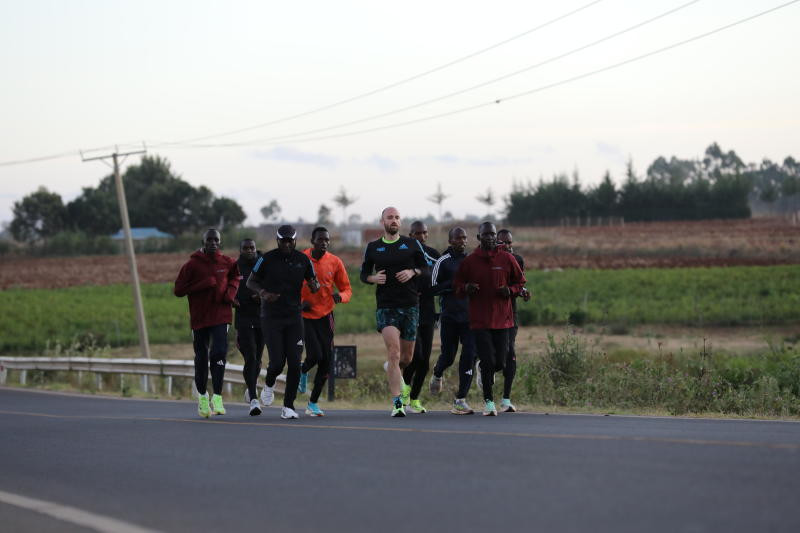By JOE OMBUOR
Pioneer Kenyan diplomat Ambassador Burudi Nabwera is many things in one- a cocktail of charm, lore, know-how and humour all packed in a slight physical figure and comportment that belies his true age. He laughs without inhibition.
Brisk as ever and still finding his way around without spectacles, Burudi was at independence in 1963 named Kenya’s first ambassador to the United States of America and Permanent Representative to the United Nations. He was callow, just turned 36 and single.
He effervesces with pride when he talks of “my days at the apex of world power, representing my President and beloved nation at its infancy”.
Burudi, 87, served for six years under 36th US President Lyndon Baines Johnson whom he describes as ‘very informal’ and Richard Nixon of the Watergate impeachment scandal. At the United Nations, UN third Secretary General U Thant was at the helm.
“He says President Kenyatta stood by him during tempestuous times when detractors wanted him out. “Kenyatta was shrewd, calculating. He was a good listener who played his cards close to his chest and made independent decisions. He would call me if there was need and say ‘if I were you, I would tackle this issue this way’”.
Taught Lucy Kibaki
“To me, Kenyatta remains Kenya’s best President so far although he degenerated into a Kikuyu chauvinist towards his last days after his tribal cronies and advanced age overwhelmed him,” he says
Burudi is equally nostalgic about his days as a class teacher at Maseno School; his alma mater and the Alliance Girls High School, Kikuyu.
“Guess who were some of the girls I taught at Alliance?” he says, sizing me with his glassy eyes that seem to glow at the slightest tinge of excitement. “Guess?” He prodded.
A smile permeates his entire face. “Among my students was Lucy Kibaki. Her classmates included the late Pamela Mboya, and Mrs Edith Matiba. I taught them Kiswahili.
I literally gawk at him.
“You taught Lucy?” I ask silently to my beard. Then loudly, I blurt out: “How were these students? How was the future First Lady?”
Burudi: “Very hard working. That particular class had very bright girls! By the way, Lucy later would reverently call me Mwalimu whenever I visited State House when I served as the Chairman of Nzoia Sugar Company during President Kibaki’s tenure.
The twinkle of pride in his eyes as Burudi touts his teacher/student relationship with the former First Lady is unmistakable.
Stay informed. Subscribe to our newsletter
He had been moved to Alliance Girls from Maseno in 1954 because the new school had no Kiswahili teacher.
But he was a bachelor and was there only briefly.
Still burns
“I left when Masinde Muliro arrived from South Africa accompanied by a wife. Bernard Mate was also there with a wife. I returned to Maseno.”
Decades later, Nabwera’s teaching instinct still burns. He does not hesitate to practise it whenever chance allows. In Kitale during this interview, he noticed my surprise at his mention of North Kavirondo as his place of birth.
“You see, the entire Lake Victoria basin was known as Kavirondo. I was born not far from Broderick Falls, now Webuye in what was then North Kavirondo District and later, North Nyanza. The word Kavirondo has been ignorantly taken to mean dark skinned natives. Winam Gulf of Lake Victoria was previously known as Kavirondo Gulf,” he says.
He adds: “It was the Swahili people from the Coast who described the natives comprising Luo, Luhya, Kalenjin and Kisii as Kaa virondo meaning people who sit on their heels from the way the women sat on their haunches while milking. The Mzungu shortened it to Kavirondo to suit his tongue.”
He continues: “Heard of Kamasia, as the Tugen people of Baringo County were previously known? It originated from the Swahili who found natives fond of wiping their noses using bare hands. They christened them watu wa kamasi, hence Kamasia by Mzungu.
“As for Lumbwa, now Kipkelion, the name emanated from a Kipsigis practice of brokering peace by cutting a dog into two, each warring party taking one side of the animal as a binding oath. It happened between the Kipsigis and the British, prompting the Kiswahili to call the natives wala mbwa easier pronounced Lumbwa by the Mzungu,’ he says.
Nabwera is the second Vice Chairman of the Luhya Council of elders and has some insightful information on Kenya’s second largest community.
“Note that the Luhya comprises 18 sub tribes of which the Bukusu is the largest followed by the Maragoli. Of the 18 sub-tribes, the Tachoni to which I belong is among the smallest and culturally affiliated to the Kalenjin. Like the Kalenjin, we circumcise our boys facing the direction where the sun rises while the rest of the Luhya do so facing where the sun sets. We share names too,” he says.
Diplomatic career
Burudi has kind words for a colonial boss under whom he worked as research assistant in the Colonial Ministry of African Affairs before he joined the Diplomatic Service for giving him the opportunity to further his education
He reminisces: “Canadian anthropologist Dr Gordon Wilson who was doing a survey on Mau Mau and other radical happenings in Kenya at the time identified me through my former teacher at Maseno Prof Meshack Ojal. I joined Ndolo Ayah, also picked for his education and ability to speak good English.”
“ The year- 1955. Elections that year allowed only Africans with property to vote in a scheme to bring wealthy natives politically closer to the whites and disenfranchise the majority poor.
The scheme failed when radicals Jaramogi Oginga Odinga, Tom Mboya, Masinde Muliro and Lawrence Oguda among others won. A total of 14 African leaders were elected to the Legislative Council (Legco),” he says.
“This job served as the spring board to my political and diplomatic career by bringing me face to face with future powerful post independence leaders. In the course of our duties, we would take the opportunity to brief them on what the colonialists were doing to counter the independence struggle,” he adds.
Dr Wilson became fond of Burudi to the extent that he organised a bursary for him to study sociology at the London school of Economics in 1958 to enable him do his research job better.
His wife Tabitha Nasipwondi whom he had married that year was later to join him in Britain where she enrolled as a registered nurse at Manchester School of Nursing, courtesy of Jaramogi Oginga Odinga.
It was during his three year sojourn in London that Burudi cultivated lasting ties with leading politicians of the time, Daniel arap Moi and Ronald Ngala included.
“Jaramogi and Mboya were so close that they would ask me to accompany them to neighbouring European countries for conference, to the chagrin of the colonial masters,” he recalls.
Back home in 1969, Burudi successfully contested the Lurambi North seat, beating Jonathan Masinde Welangai. He was appointed as assistant minister for Foreign Affairs under Dr Njoroge Mungai.
He won the seat again in 1974 but opted to remain a backbencher with other outspoken colleagues including J.M. Kariuki and Charles Rubia.
Bogey of tribalism
“We felt that being made assistant minister was a gimmick to silence us on sensitive issues,” he says.
He was in the race again in 1979 but the hideous bogey of tribalism shoved him aside when the majority Kabras preferred to vote for Joshua Angatia, a Kabras.
“President Moi appointed me Chairman of a financially crippled Chemelil Sugar Company in 1980. The miller was up and running with over Sh100 million surplus by the time I left in 1988, but went down under my successor’s watch,” he says.
Over delegated
Burudi describes Moi as by far the most nationalistic of Kenya’s four post independence presidents who trusted a lot of people from other ethnic groups with national posts. Kibaki appointed Burudi Chairman of Nzoia Sugar Company in 2007, a post he held until 2010.
“Like Chemelil, Nzoia was in the red when I took over. The miller was a billion shillings afloat when I left, only to relapse to financial limbo in latter years.”
He says of President Kibaki, his fellow alumni at Makerere: “He put his economic prowess into running government with sterling economic results but over delegated and did not supervise his ministers well. He lacked Kenyatta’s caution. This man never changed from the studious, quiet person we knew at Makerere.”
Of President Uhuru a year into State House he says: “Uhuru seems overexcited and unable to settle down.He must reduce pronouncements and let people know where he is going. I honestly find it difficult to place the son of Jomo.”
 The Standard Group Plc is a
multi-media organization with investments in media platforms spanning newspaper
print operations, television, radio broadcasting, digital and online services. The
Standard Group is recognized as a leading multi-media house in Kenya with a key
influence in matters of national and international interest.
The Standard Group Plc is a
multi-media organization with investments in media platforms spanning newspaper
print operations, television, radio broadcasting, digital and online services. The
Standard Group is recognized as a leading multi-media house in Kenya with a key
influence in matters of national and international interest.
 The Standard Group Plc is a
multi-media organization with investments in media platforms spanning newspaper
print operations, television, radio broadcasting, digital and online services. The
Standard Group is recognized as a leading multi-media house in Kenya with a key
influence in matters of national and international interest.
The Standard Group Plc is a
multi-media organization with investments in media platforms spanning newspaper
print operations, television, radio broadcasting, digital and online services. The
Standard Group is recognized as a leading multi-media house in Kenya with a key
influence in matters of national and international interest.









